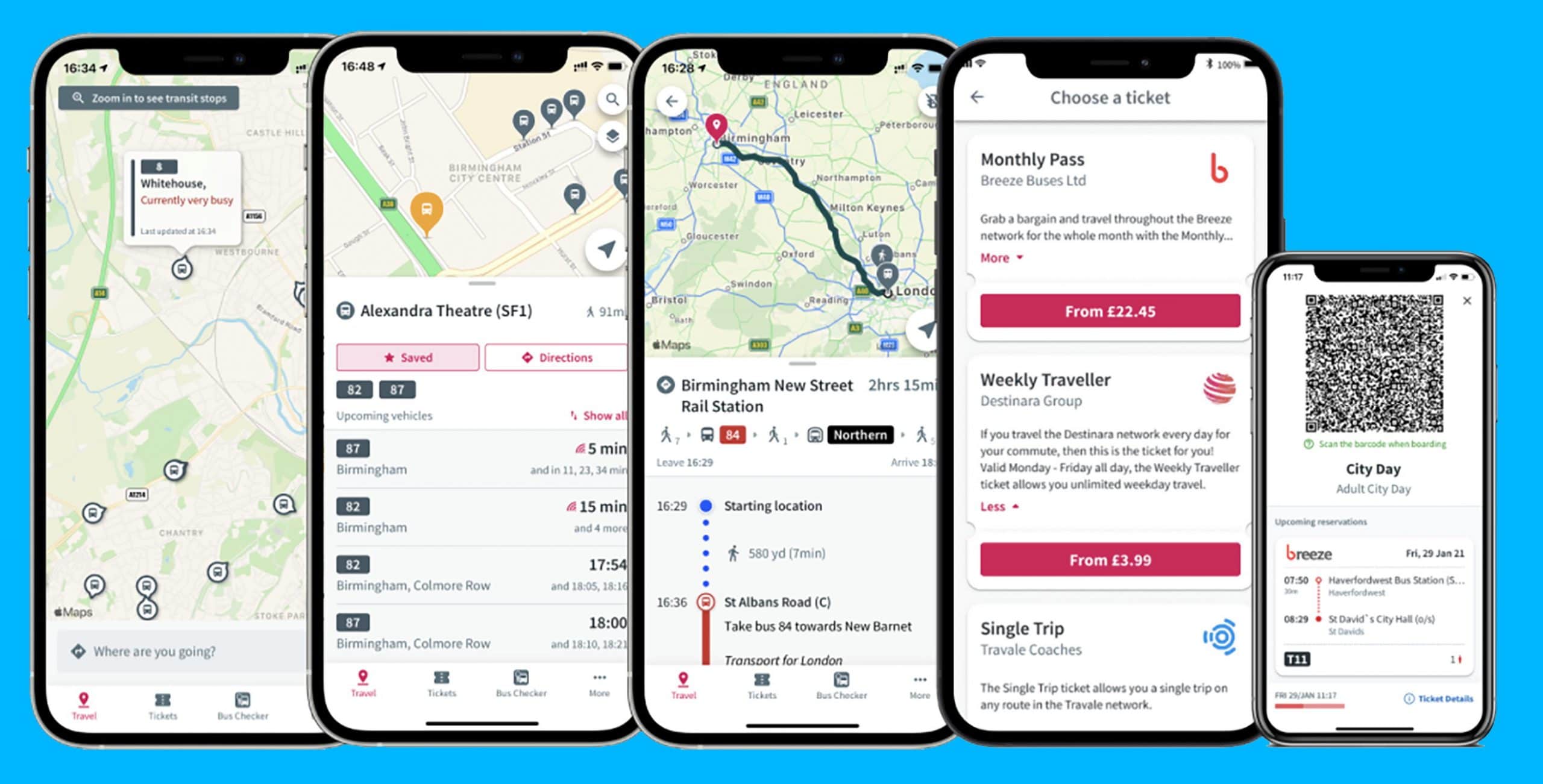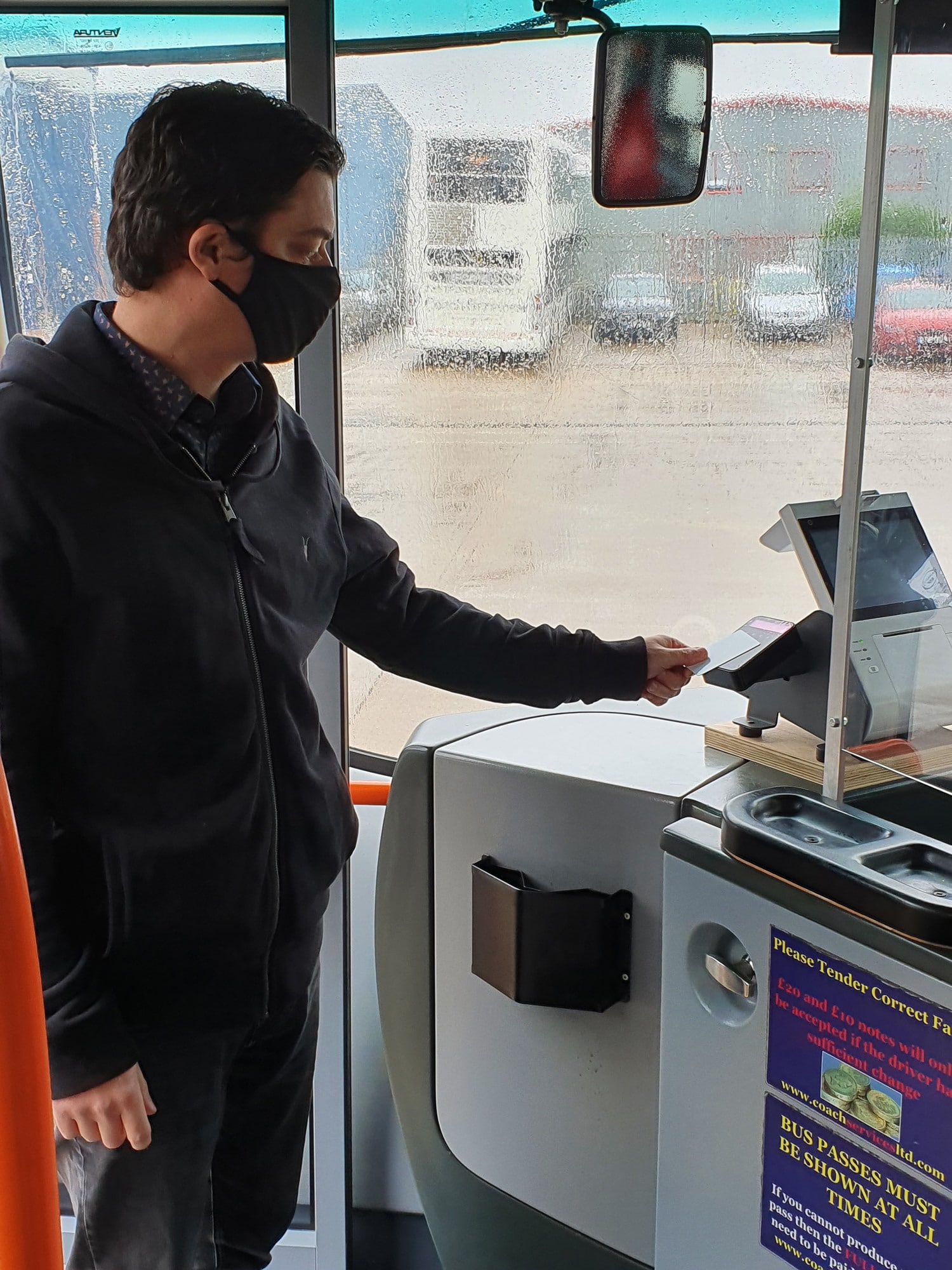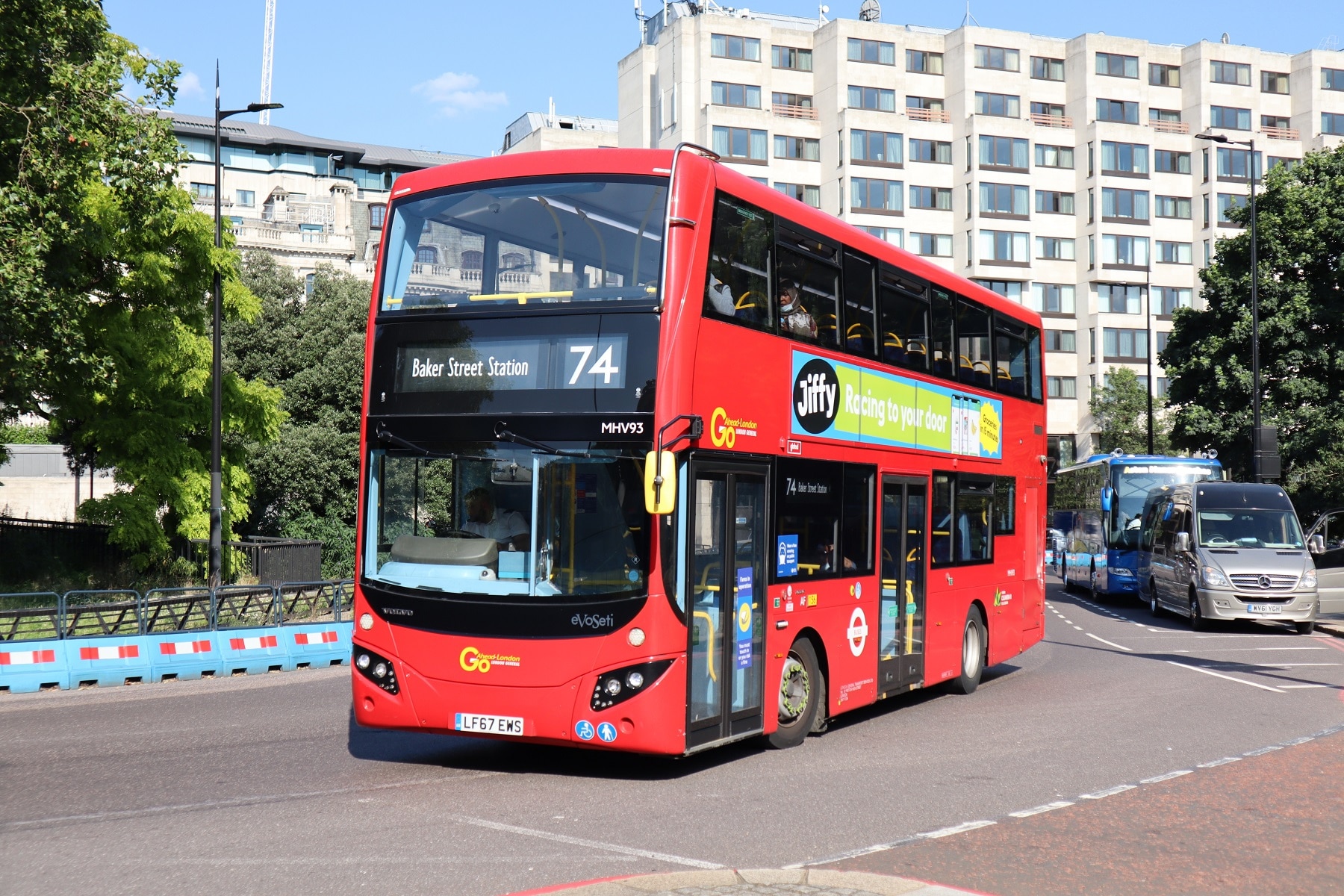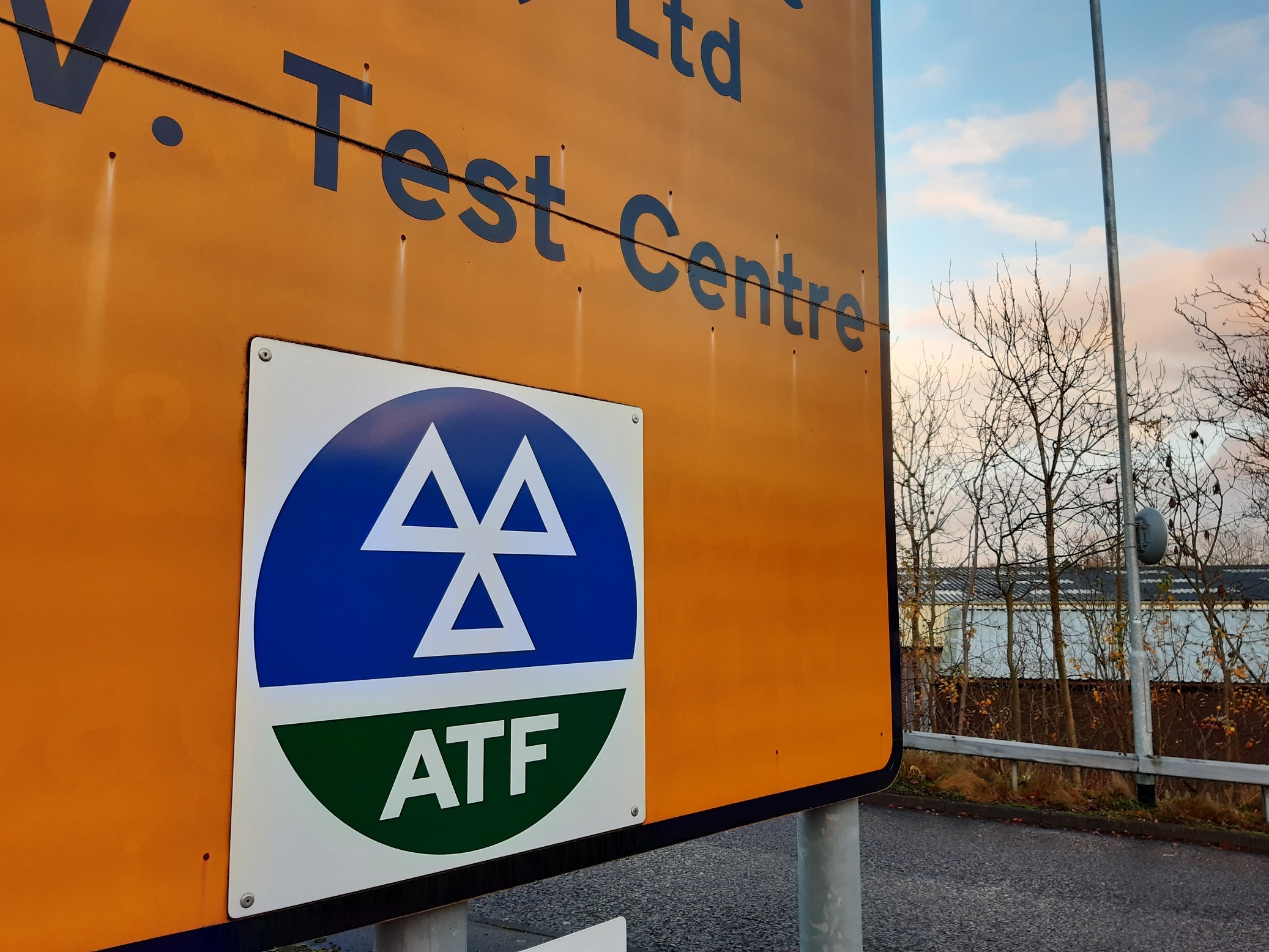Apps and e-tickets have the power to make bus travel more convenient and attractive. We take a look at the work of some key players
Bus Back Better, the National Bus Strategy for England, made it clear that bus journey planning in England should be easy to access for passengers via websites and apps, with “everything passengers need to know at their fingertips”.
The data to make that happen – journey times, accessibility information, fares and live running times – was already largely available. It’s up to tech suppliers to make the most of it. But the journey to a comprehensive digital planning service is far from over.
Multi-operator ticketing
Better collaboration between operators forms a key part of the Strategy. UrbanThings is one provider of an integrated mobility as a service platform which combines data from multiple operators and modes to provide multi-operator mobile ticketing and payments, multimodal real-time information and journey planning, and back-office analytics for the operator.
Reading Buses, Midland Classic and Hattons Travel were among the first operators to sign up to a new mobile ticketing feature added to UrbanThings’ UK Bus Checker X app earlier this year.
The introduction of the mobile ticketing function to the app means operators already using the service now can sell mobile tickets to their existing users – a “seamless passenger experience” according to the supplier, where users can plan journeys, view live updates and buy tickets without even leaving the app.
It is “the single biggest change in the app’s history,” UrbanThings CEO Carl Partridge says, “and one that passengers have been asking for since we launched nearly 10 years ago. Over 7m departure boards are viewed in Bus Checker each year – transport providers can now sell tickets to their customers in the app that they’re already using.”
Bus Checker X integrates into the UK Bus Open Data Service (BODS) policy, making it faster and easier for operators to get involved, and brings multi-modal real-time travel information and journey planning tools to 3m users.
Bringing passengers back
In late October, Passenger announced the completion of the roll out of its customer-facing platform for the Go-Ahead Group. That includes the launch of eight new operator websites which complement 17 apps launched earlier in the year.
Metrobus, Go East Anglia and its subsidiaries, Go South West and its subsidiaries, Go North West, Oxford Bus Company and Carousel Buses are the beneficiaries.
The websites complement the apps by providing journey planning, live bus tracking and online departure boards. Various operators working under the group now offer eCommerce, allowing customers to buy tickets online and use them instantly in their apps.
All of this serves not just to advance ease of travel, but also helps operators face up to the challenge of attracting passengers back.
The vehicle tracking system that underpins Passenger’s web and mobile applications, and which allows consumers using public transport to actually see where their vehicle is, are the key elements in Passenger’s product suite, according to CEO Tom Quay. He believes such technology is delivering new levels of confidence that is necessary to create modal shift.
There are two key systems involved – one that predicts when the vehicle will be at a bus stop, and a second system which provides vehicle tracking. “Those two independent systems within the same app or website allow increasing levels of confidence about whether that bus is going to turn up, and if you’re talking about a low frequency route – one bus per hour – that kind of confidence is needed for people to make their journey by public transport instead of the car,” he asserts.
There’s an avenue to be explored in terms of how web and apps can be aligned to make the most of passenger journey types. Using search engine optimisation content strategies online, operator websites might be better optimised to advertise ticket offers to passengers frequently making journeys to local attractions or events. Tom suggests tech companies may have a role in upskilling the industry to ensure they are making the best use of the technology they have in that regard.
“The role we have as a technology provider isn’t necessarily just to provide the technology,” he adds. “It’s also about providing bus operators with skills in making a digital strategy, in order to tap into what a passenger is already doing prior to thinking about how they might approach getting to a destination. It’s things like that we can enable on top of technology.”
Another example is in configuring discount codes to provide incentives for bus travel. In September, Bluestar, Blackpool Transport and Nottingham City Transport each configured discount codes for specific tickets, times and users. Passenger’s cloud-based system then evaluates how those discount codes are performing. Tailoring of discounts encourages operators to be creative on how they are designed. In Swansea, operators using promotional offers saw a 20% patronage jump during a free journey weekend in August.
 Contactless grows patronage
Contactless grows patronage
One seemingly effective means of growing patronage seen earlier this year was in the deployment of contactless ticketing on Hulleys of Baslow’s 25 vehicles. It also demonstrates another key benefit for operators from digital ticketing services – readily accessible data.
The operator upgraded to TransMach’s on-bus ticket machines with contactless payment in July 2020. It subsequently saw a 10% increase in patronage across all its routes, which cover areas such as the Peak District and South Yorkshire.
Boarding data is logged remotely through a cloud-based back-office system which also produces concession fare reports.
The data can be accessed through any web browser and allows for reduced administration and faster electronic reimbursement for the operator. A BODS-compatible SIRI data feed and GPS tracking provides passengers with a flow of real-time vehicle information.
More tech, more shift?
The advance of passenger facing tech will march on elsewhere.
Tech companies, local transport authorities and operators continue to work together to deliver on the improvement of digital services for passengers across the UK. Apps and websites have the power to make bus services easier to understand and electronic and contactless ticketing has been linked with patronage growth.
Apps and websites will continue to be key to helping passengers make the informed choice to travel by bus by providing confidence and travel incentives.






















 Contactless grows patronage
Contactless grows patronage





